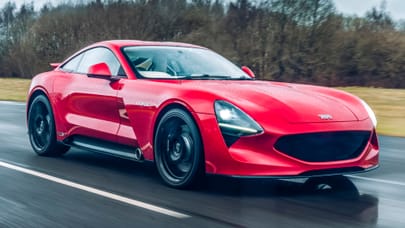
Toyota and Mazda are teaming up to protect their cars from cyber attacks
Toyota, Mazda and Hitachi are among the companies to have signed up to safer software standards in connected cars
Lots of Japanese companies including Toyota, Mazda, electronics giant Hitachi and part manufacturers such as Aisin and Denso are setting out to make connected cars safer from cyber attacks. Yep, this is the world we live in now folks.
To protect you from world-threatening Black Mirror-loving anarchists with previous form infiltrating banks, the NHS and elections, some 116 companies, all members of the Japan Automotive Information Sharing and Analysis Center (thankfully, J-Auto-ISAC for short), want to formulate an standard SBOM, aka a Software Bill of Materials.
Individual carmakers already have their own SBOMs, but they're all different – something AnarchistRebel7283* loves. The J-Auto-ISAC group though reckons that by using a set of unified rules and/or an inventory of components for automotive software, it’ll minimise the chances of in-car programmes becoming vulnerable to cyber attacks.
Not only could such standardisation ensure that remote updates happen as frequently as robotically possible (and thusly keep the car protected from patchy lines of code) but it could also reduce the number of names given to the same in-car feature, e.g. adaptive cruise control vs. intelligent cruise control vs. smart cruise control. Huzzah, simplicity for the consumer.
Japan isn’t the only country doing this. In Europe, the United Nations standards, such as autonomous emergency braking and speed limiters, are being made mandatory. Plus, we're not surprised to learn that J-Auto-ISAC is coordinating with Auto-ISAC, the North American version of the body, whose 81 members include Ford, Ferrari and Jaguar Land Rover. Very prudent.
To date, there’s not yet been an example of a wide-scale malicious cyber attack on a car – provided you're not counting all those nerdy thieves who've been using keyless entry to nick fancy models to order. Attempts to remotely control vehicles have been performed by white-hat hackers hoping to prevent any kind of Fast and Furious 8 hacking incidents in the future. Let's hope it stays that way.
*this avatar has been created for dramatic purposes.
Top Gear
Newsletter
Thank you for subscribing to our newsletter. Look out for your regular round-up of news, reviews and offers in your inbox.
Get all the latest news, reviews and exclusives, direct to your inbox.
Trending this week
- Car Review
BMW iX3








